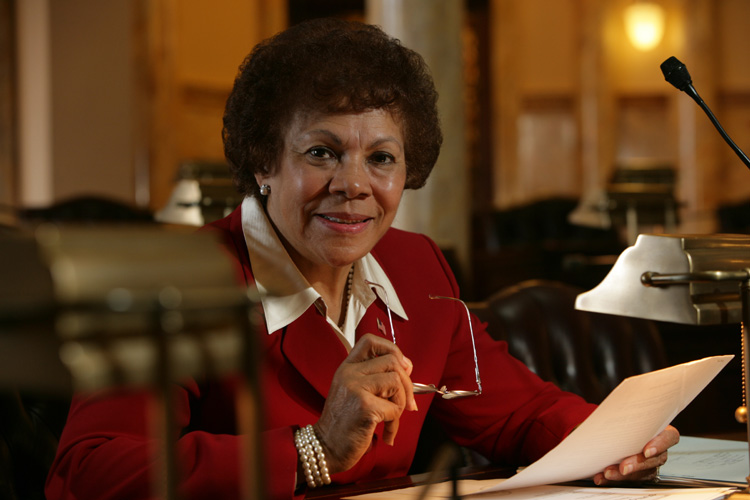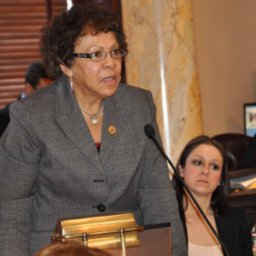
TRENTON – Legislation sponsored by Senator Shirley K. Turner to establish a restricted driver’s license for certain motor vehicle offenders with suspended licenses advanced through the Senate Budget and Appropriations Committee today.
The bill, S-654, would permit the MVC to issue a restricted use driver’s license endorsement for drivers whose licenses have been suspended or revoked for failure to pay motor vehicle surcharges or for accumulation of motor vehicle penalty points. Drivers with an accumulation of motor vehicle penalty points must first attend a Driver Improvement Program offered by the MVC before being eligible for the endorsement. Under the bill, a person convicted of drunk driving or refusing to take a breathalyzer test would not be eligible for an endorsement. The restricted use license would allow the driver to operate a motor vehicle exclusively to and from work, an accredited educational institution, a mandated treatment program, a health care facility, or a child care facility, according to the legislation.
“Many people in our state are caught in a catch 22; they do not have the money to pay off their motor vehicle fees, so they cannot restore their licenses, but the lack of a license often strips them of their ability to get to and from work, which ultimately results in job loss. This can result in deeper debt,” said Senator Turner (D-Hunterdon/Mercer). “Rather than trap these people in an endless cycle of joblessness and ever-increasing surcharges, this bill would allow the affected individuals to continue to work and earn money to be able to pay off the surcharges.”
Under the bill, if an individual is issued a restricted license, he or she would be allowed to operate a car exclusively to and from work, an educational institution, a mandated treatment program healthcare facility or a child care facility. Drivers may apply for the endorsement if their driver’s licenses have been suspended or revoked for failure to pay motor vehicle surcharges and they agree to a payment plan approved by the chief administrator, or for an accumulation of motor vehicle penalty points, but only if they attend a driver improvement program.
“A restricted use license gives residents the necessary latitude to improve their circumstances. They can still drive to their job, enabling them to provide for their families and themselves,” added Senator Turner. “People in urban areas are particularly affected by license suspensions for failure to pay surcharges. The state found that 59 percent of drivers suspended for failing to pay surcharges live in urban communities. People that live in urban areas are poorer, minorities, and experience higher unemployment. We should be eliminating barriers to employment to make it possible for more individuals to secure jobs and get to work and be less reliant on government programs.”
The bill would also establish some penalties for people who abuse their privilege. A driver would immediately be disqualified from their license, subject to a fine of at least $500 but not more than $1,000, 30 days of community service and an additional one year license suspension or revocation for drinking outside the established restrictions.
Thirty-nine states and the District of Columbia have restricted or conditional use driver’s licenses for individuals with license suspensions. According to research conducted by Rutgers University, most states consider their programs to be effective. Some states noted that they have reduced the number of habitual offenders, reduced unemployment, and helped families to avoid serious hardships.
S-654 cleared the Budget and Appropriations Committee with a vote of 8-5 and now heads to the full Senate for further consideration.


